The closer you look, the clearer it gets
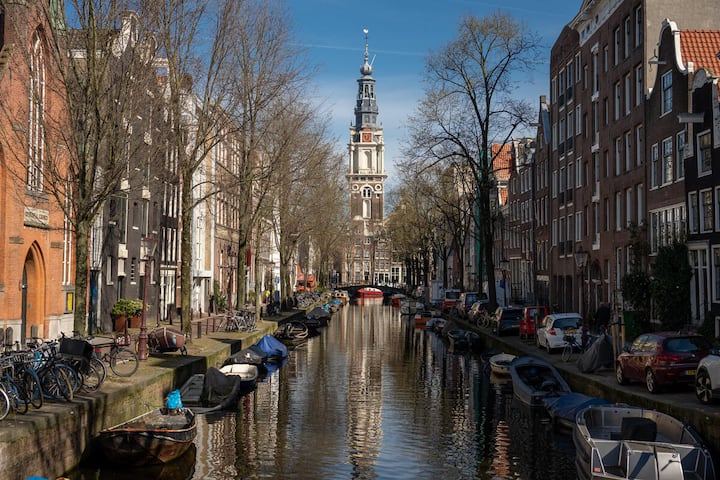
Amsterdammers are facing challenges with overtourism, and the demand for action is growing daily
In fact, according to data, Amsterdam is seeing more and more tourists each year.In 2023, approximately 4 million visitors stayed in the city center, with Airbnb accounting for less than 2% of total overnight stays.While 9 out of 10 nights in Amsterdam are spent in hotels the City keeps targeting restrictions on short-term rentals, like Airbnbs, to alleviate pressure on tourism.These regulations mainly impact local residents who occasionally rent their homes and fail to address the larger issue of hotel guests driving tourism. This leaves us with an important question:How can you address Amsterdam’s overtourism crisis with just 2% of a solution?
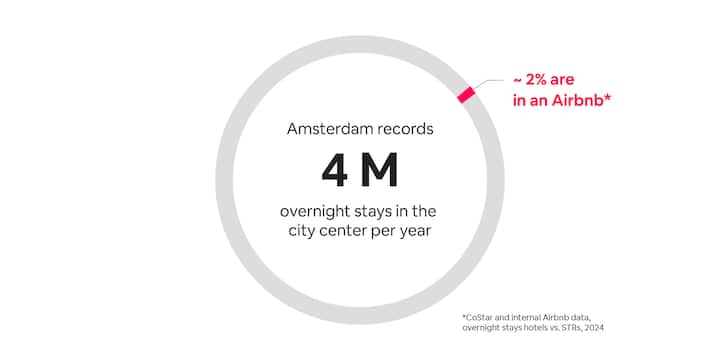
By the numbers
2%
Over 4 million overnight stays by tourists in the city center and approx 2% of them are in Airbnb.
25.4 million
In 2023, Amsterdam welcomed 25.4 million day visitors, while fewer than 400,000 stayed in an Airbnb. This highlights the overwhelming dominance of day-trippers over short-term rentals in the city.
90%
More than 90% of tourist accommodations in Amsterdam are owned by large hotel chains, primarily located in the city center.
80%
Unlike hotels, more than 80% of short-term rentals through Airbnb take place outside the city center.
96%
While hotels accounted for 96% of the growth in overnight stays in Amsterdam between 2021 and 2023, the municipality keeps targeting restrictions on STR.
Acknowledge the facts
Short-term rentals in Amsterdam have much less impact on tourism than hotels while providing vital income to local Amsterdam hosts. Regulations should be data-driven, only applied where clear evidence links STRs to nuisances rather than relying on misperceptions and false assumptions
More STR regulations aren’t the answer
But evidence-based rules that are flexible and targeted at neighborhood level are. While restrictions on STRs may be justified in the city center, they should not impact locals who share their homes on a casual basis to supplement their income. As Amsterdam already has one of the most restrictive regulations for short term rentals in Europe, urban planning rules should now focus on local hotel development that also impacts housing capacity.
Arie (69, prefers not to use last name) lives on a houseboat by the Nieuwmarkt, which he enjoys very much. But if the municipality's plans go ahead to halve the number of rental days next year to fifteen per year, he will no longer be able to live there. "Then the costs will be too high," he says. "We purely need the income from Airbnb to stay living here."
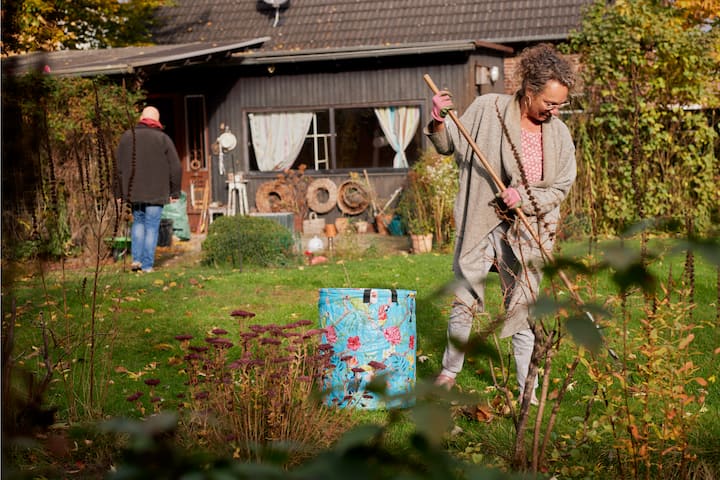
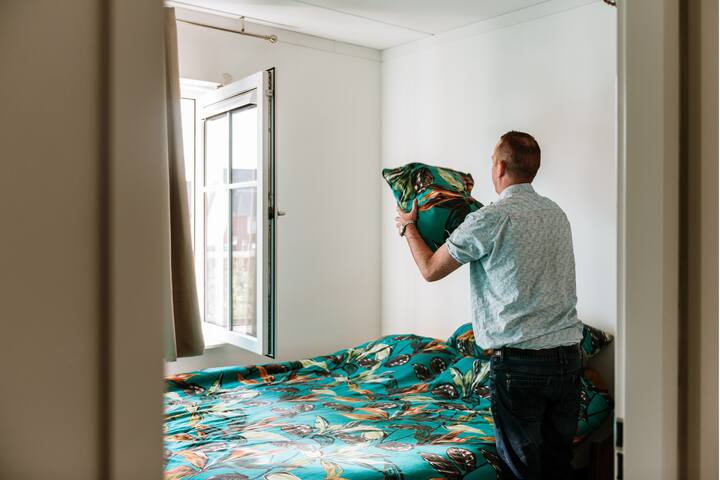
“Marco is frustrated that the municipality makes no distinction between home exchanges and other tourism. "It’s shortsighted that the municipality indiscriminately lumps everything together. They have never looked into how much trouble home exchanges actually cause. I dare to say blindly: none. But the municipality says, it’s tourism, so there’s trouble. It’s symbolic politics."
Supporting local economies
Redirect tourist tax revenue back to local communities outside the city centre to community projects or new housing supply: Since 2015, Airbnb alone has collected and remitted over €66.8 million in tourist tax on behalf of hosts and guests in Amsterdam. We suggest reinvesting tourist tax revenue locally through a direct and transparent allocation to a dedicated community fund to enhance livability, ensuring economic benefits from tourism are more equally distributed, benefiting all Amsterdammers.
- Short-term rentals in Amsterdam generated €1.3 billion in Gross Domestic Product and supported approximately 12,000 jobs in 2023.(Oxford economics report, 2024)
- Visitors using short-term rentals in Amsterdam spent about €950 million outside of their accommodation - on restaurants, retail, transport, and cultural activities. (Oxford economics report, 2024)
- The average length of stay in short-term rentals in Amsterdam was approximately 4.2 nights, which is longer than the average stay in hotels. (Oxford economics report, 2024)
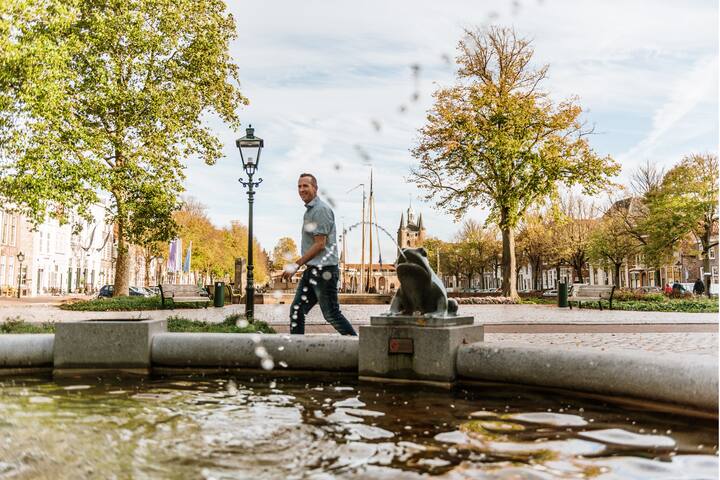
Building a sustainable tourism future in Amsterdam
A fairer and more balanced district-level approach to STR regulation will help manage tourism flows and housing concerns more effectively while supporting local communities and ensuring every Amsterdammer benefits from tourism. To this end, Airbnb proposes the following recommendations for STR rules that allow a balanced and sustainable tourism future in Amsterdam. More info can be found in our recent publication: Revisiting Amsterdam tourism policy for the benefit of Amsterdammers and and travelling families